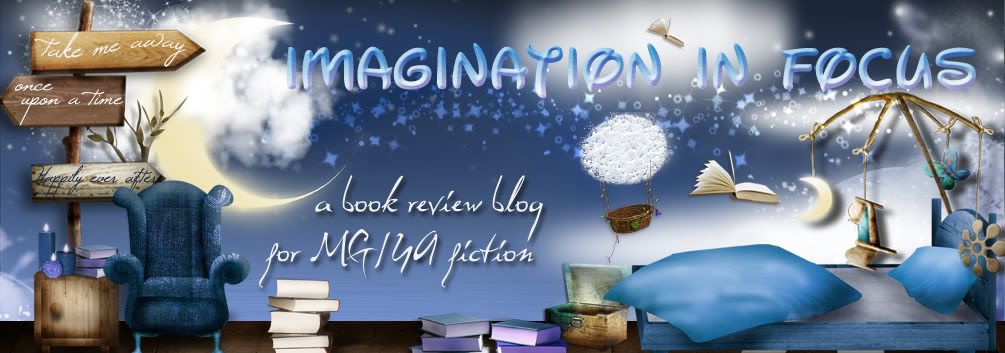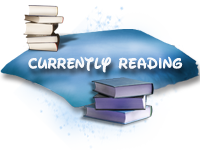
You know how it’s good to “never say never,” and Fievel and Tiger even sing a cute song about it in An American Tail…? Well, sometimes I think it is okay to “say never”: I’m never going to kick a kitten, I’m never going to slap a child, I’m never going to shoot someone, I’m never going to shoplift, I’m never going to stop believing in God, and I’m most likely never going to read George R.R. Martin.
So…okay, we’ve established that. So why is it that I still manage to get so worked up over a silly comment made by an author who will 1) never EVER outsell my favorite author, Mr. JRR Tolkien, and 2) never be read by me?
Maybe it’s because his view is something I seem to see a lot of these days. Why do authors hate good-and-evil stories? I don’t understand! I think the best stories out there – speaking in terms of fantasy – are the ones that follow the Hero’s Journey model, ones that traditionally have good-and-evil themes on an epic scale.
According to the Encyclopedia of Fantasy, characteristics of “heroic fantasy” include a scenario where the protagonist is reluctant to be a champion and is of low or humble origin, and frequently has royal ancestors or parents but does not know it. Through events usually beyond his control, he is thrust into positions of great responsibility where his mettle is tested in a number of spiritual and physical challenges. Although it shares many of the basic themes of Sword and Sorcery the term 'Heroic fantasy' is often used to avoid the garish overtones of the former. In my previous post, I mentioned that Lloyd Alexander’s Chronicles of Prydain are my favorite series, and one of the many reasons why is because of the themes that Alexander so effortlessly and poignantly weaves into his stories. Yes, his characters are flawed and dynamic, but more importantly they’re inspiring. Sure, everyone wants characters they can relate too, but don’t you want characters you can look up too, also? I sure do. Like I mentioned before, JRR Tolkien’s epic Middle Earth stories not only exemplify “heroic fantasy,” they also helped to boost a revival in the popularity of the subgenre. Frodo Baggins is certainly not a perfect character. He’s flawed – a little on the ignorant side, as a Hobbit he’s not really supposed to be one of the more ‘important’ species of Middle Earth, and as the story progresses, he even falls prey to the power of the Ring. But he’s still good. Does that make sense?
Now, though, new fantasy authors are apparently changing the trend. I’m all for shaking things up and everything, but I can’t help but wonder if all changes in literature are necessary and beneficial. Many new fantasy authors are trying to shed the traditional concept of heroes and even of good and evil (I’m taking bits of this from wiki too). Now, thanks to the like of Jacqueline Carey and George R.R. Martin (my dad has dubbed the latter the ‘Anti-Tolkien’), there is a blurring between ‘heroes’ and ‘villains.’
There was one quote that Martin made in particular that sparked this post…and now I look like such a doofus because I can’t find it to post on here (I’m writing in class right now). But why the blurring? Why does everything have to be so dadgum ambiguous? You know I have a tendency to be a little “over-the-top” I guess, but I find authors’ desire to blur good and evil and introduce ideas of relativism to be a little on the disturbing side. And besides, that’s not very “epic.” Most epic stories need some sort of grand struggle… I think you can tell that I’m a champion of heroic fantasy and its themes. There’s a grandness about them, there’s something inspirational as well as thought-provoking. It’s something I try to emulate when I write. But then again, I believe in right and wrong, and I like “good” protagonists and “bad” villains. Now please hear me – this is not an invitation for cardboard characters or blasé fairytale retellings (have you ever noticed that fairytales are very…like…there’s not a lot to them) but then again, there is nothing, nothing blasé about Tolkien’s works. If there was any power in wishful thinking, then I would wish for a return to the styles of Lloyd Alexander, CS Lewis, and JRR Tolkien: fantasy stories with heart.
I have to go, but I just wanted to toss yet some more thoughts out into the great blogosphere!
So…okay, we’ve established that. So why is it that I still manage to get so worked up over a silly comment made by an author who will 1) never EVER outsell my favorite author, Mr. JRR Tolkien, and 2) never be read by me?
Maybe it’s because his view is something I seem to see a lot of these days. Why do authors hate good-and-evil stories? I don’t understand! I think the best stories out there – speaking in terms of fantasy – are the ones that follow the Hero’s Journey model, ones that traditionally have good-and-evil themes on an epic scale.
According to the Encyclopedia of Fantasy, characteristics of “heroic fantasy” include a scenario where the protagonist is reluctant to be a champion and is of low or humble origin, and frequently has royal ancestors or parents but does not know it. Through events usually beyond his control, he is thrust into positions of great responsibility where his mettle is tested in a number of spiritual and physical challenges. Although it shares many of the basic themes of Sword and Sorcery the term 'Heroic fantasy' is often used to avoid the garish overtones of the former. In my previous post, I mentioned that Lloyd Alexander’s Chronicles of Prydain are my favorite series, and one of the many reasons why is because of the themes that Alexander so effortlessly and poignantly weaves into his stories. Yes, his characters are flawed and dynamic, but more importantly they’re inspiring. Sure, everyone wants characters they can relate too, but don’t you want characters you can look up too, also? I sure do. Like I mentioned before, JRR Tolkien’s epic Middle Earth stories not only exemplify “heroic fantasy,” they also helped to boost a revival in the popularity of the subgenre. Frodo Baggins is certainly not a perfect character. He’s flawed – a little on the ignorant side, as a Hobbit he’s not really supposed to be one of the more ‘important’ species of Middle Earth, and as the story progresses, he even falls prey to the power of the Ring. But he’s still good. Does that make sense?
Now, though, new fantasy authors are apparently changing the trend. I’m all for shaking things up and everything, but I can’t help but wonder if all changes in literature are necessary and beneficial. Many new fantasy authors are trying to shed the traditional concept of heroes and even of good and evil (I’m taking bits of this from wiki too). Now, thanks to the like of Jacqueline Carey and George R.R. Martin (my dad has dubbed the latter the ‘Anti-Tolkien’), there is a blurring between ‘heroes’ and ‘villains.’
There was one quote that Martin made in particular that sparked this post…and now I look like such a doofus because I can’t find it to post on here (I’m writing in class right now). But why the blurring? Why does everything have to be so dadgum ambiguous? You know I have a tendency to be a little “over-the-top” I guess, but I find authors’ desire to blur good and evil and introduce ideas of relativism to be a little on the disturbing side. And besides, that’s not very “epic.” Most epic stories need some sort of grand struggle… I think you can tell that I’m a champion of heroic fantasy and its themes. There’s a grandness about them, there’s something inspirational as well as thought-provoking. It’s something I try to emulate when I write. But then again, I believe in right and wrong, and I like “good” protagonists and “bad” villains. Now please hear me – this is not an invitation for cardboard characters or blasé fairytale retellings (have you ever noticed that fairytales are very…like…there’s not a lot to them) but then again, there is nothing, nothing blasé about Tolkien’s works. If there was any power in wishful thinking, then I would wish for a return to the styles of Lloyd Alexander, CS Lewis, and JRR Tolkien: fantasy stories with heart.
I have to go, but I just wanted to toss yet some more thoughts out into the great blogosphere!















13 shout-outs!:
Interesting points...
Like you, I enjoy traditional fantasy and I love the concept of a hero's journey taking center stage. And while I like change every once in awhile, it is hard to take in too much.
The old stuff is still good for a reason!
I second Allie's emotions :)
I have read George R.R. Martin, and I think the interesting thing is that the good vs. evil struggle seems to be going on inside of the characters, not just between the characters. And, not that traditional Tolkien fantasy doesn't seem realistic, but it also seems realistic to have characters that struggle with the issue within themselves (because most people aren't all good, and they aren't all bad).
I tend to see certain characters in Martin's books as good or bad, even if they do have both sides to them. IDK, I haven't really thought about this before, but it's also been over a year since I read any of Martin's books. LOL If the series ends up letting the ppl I see as bad winning I'll be annoyed. That's assuming the series ever gets finished. ;)
I haven't read any books by George R.R. Martin. One series I didn't care for is His Dark Materials by Philip Pullman. I felt like the "good" side wasn't really good and I was so incredibly disappointed with it in the end. I won't be reading anything else by Pullman.
I do prefer the epic fantasy with the good vs. evil theme like LOTR or even Harry Potter. L
OTR, Harry Potter, and the Chronicles of Narnia are very popular still so hopefully more fantasy authors will keep writing in that vein.
That's an interesting point about HDM, Christina! I havent read the series so I guess I can't comment, but from what I understand, I can understand the scenario :P
I think good vs. evil is the theme of life. There will always be good and there will always be evil and people will always need to pick a side. I think every book has some good vs. evil in it, though I haven't read Martin. Maybe his are just plain and therefore include no conflict or internal struggles. *shrugs* P.S. Rant ON!
Personally, I love epic fantasy novels, good vs. bad - they were my introductions into the literary world and are still my steadfast companions.
I think many authors run the risk of wanting to be unnecessarily complicated and, as you rightly say, ambiguous. Plus, it infuriates me when people patronise the traditional fantasy genre and accuse of it of being "overly simplistic". There's nothing "overly-simplistic" about great pieces of literature such as C.S. Lewis' works and my personal favourite series, Michelle Paver's Chronicles of Ancient Darkness.
I love and always will love this genre, irrespective of what a few "greater-than-thou" authors have to say :).
LOL "greater than thou"! I love that :D
I completely agree with you and everyone else who said the old ones are good for a reason. Good vs evil is an eternal theme that will never go away however much anyone wants it to. Very few things are black and white on the surface, but if you dig deep enough you will see the "true colors". Everyone struggles, but in the end, one is either good or bad. Both are real and relevant. I don't like that ambiguous fantasy either. Get off the fence and choose a side!
haha, I guess I joined the rant...
Hmmm... that is offputting that a fantasy author would poopoo the traditional hero epic. Even if he wants to branch out to explore new territory, he should at least pay homage to the traditional form of his art--- without which, he probably wouldn't have a job.
I do enjoy reading a new take on fantasy sometimes but I will always love the epic. After Tolkien, Robert Jordan's Wheel of Time series is my favorite-- it is so epic it makes me swoon!
btw, took me awhile to get into Pullman's Golden Compass but I ended up enjoying the whole series. I can't see it ever appealing to as wide an audience as LoTR, though.
Got to look up this Martin guy-- havent' heard of him.
Lesa
Keep up the random thoughts and tangents!
what a great post, Amelia - very well said and honest. I don't really have much of an opinion except to say, I love good and evil themes. And humble, unaware protagonists? my favourite!
SB
not too serious i hope
I love this post. Very many interesting points have been put forward..
I've only read the first two books of GRRM's epic (and I do mean epic) series, but I love them. I'm curious about what he said and if maybe it was taken out of context or something. He strikes me as the type who knows Tolkien word-for-word, front-to-back and back-to-front.
I've enjoyed the Jacqueline Carey books I've read also, and don't really find anything ambiguous about good and evil in them. Well, maybe in one short series, but in the other, it's very clear who's good and who's not. Hmm. Curious.
Post a Comment